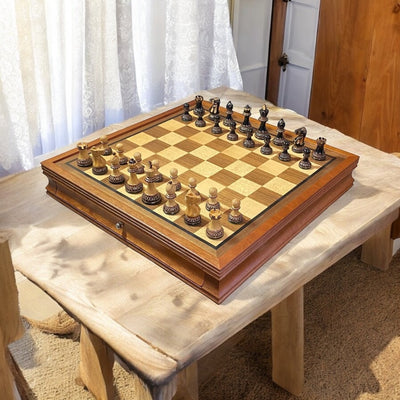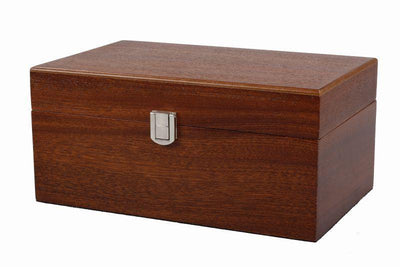Mastering the Art of Hosting a Chess Tournament: Essential Tips for Organizers
Chess is more than just a game; it’s a captivating blend of strategy, skill, and social interaction. Hosting a chess tournament can be a fulfilling experience, allowing enthusiasts to showcase their talents using elegant regal chess pieces. Whether you are a passionate player or an organizer looking to foster a community of chess lovers, this guide is packed with tips on how to successfully navigate the planning and execution of a chess tournament.
Define Your Objectives
Before diving into the logistics of organizing your chess tournament, it’s essential to establish clear objectives. What type of tournament are you aiming to host? Here are some common goals:
- Promote Community Engagement: Bring local players together and foster a sense of camaraderie.
- Encourage Skill Development: Provide a platform for players of all levels to enhance their skills.
- Showcase Talent: Identify the finest players in your community or school.
- Raise Funds: Use the tournament as a fundraiser for a specific cause or organization.
Having a clear vision will guide your decision-making process and help you stay focused as you plan the tournament.
Choosing the Right Format
Once you’ve set your objectives, the next step is to decide on the format of the tournament. Each format offers unique advantages and caters to different player preferences:
Standard Swiss System
The Swiss system is one of the most popular tournament structures for chess competitions. It allows players to compete against opponents with similar scores after each round. This format typically requires a minimum of 10 players and can be very engaging while ensuring that players of varying skill levels stay involved until the end. It’s perfect for competitions that aim to accommodate larger groups and get players more game time.
Round Robin
In a round-robin format, each participant competes against every other competitor. This structure ensures that every participant plays the same number of games, making it an excellent choice for a smaller group of highly skilled players. It fosters competitiveness and performance evaluation across the board.
Knockout Tournament
This is a more straightforward approach where players compete in head-to-head matches, with the loser being eliminated from the tournament. Knockout tournaments often generate excitement, as every match carries high stakes, but they typically require a larger initial participant pool to ensure some players progress beyond the opening rounds.
Selecting the Venue
The venue you choose can significantly influence the success of your chess tournament. Here’s what to consider when selecting a location:
- Space: Ensure there is enough space to accommodate the expected number of participants and spectators comfortably.
- Amenities: Look for venues that offer necessary facilities, such as restrooms, catering options, and parking.
- Ambiance: An environment that reflects the elegance of chess, perhaps with decorative features or beautiful regal chess pieces on display, can add to the overall experience.
- Accessibility: Choose a location that is easy to reach for participants and spectators, considering public transportation options as well.
Gathering Supplies
Having the right supplies can make or break your chess tournament. Here’s a list of essentials to gather:
- Chess Sets: Invest in quality chess sets, preferably featuring beautiful regal chess pieces, to ensure a pleasant playing experience.
- Clocks: Chess clocks are essential for timed matches, so make sure you have enough to accommodate all games.
- Pairing Software: Consider using pairing software to help manage matchups efficiently, particularly for larger tournaments.
- Score Sheets: Provide players with score sheets to keep track of their games and results.
- Tables and Chairs: Ensure you have enough seating arrangements for participants and their spectators to comfortably enjoy the games.
Promotion and Outreach
Now that you have your logistics in place, it’s time to spread the word and attract participants. Promotion is key to building excitement and ensuring a fulfilling turnout:
Leverage Social Media
Use platforms such as Facebook, Instagram, and Twitter to advertise your tournament. Create an eye-catching event page and use visuals featuring exquisite regal chess pieces to stimulate interest among potential players.
Engage Local Clubs
Reach out to local chess clubs and schools to invite players and encourage them to spread the word. Collaborative promotion can bring in a wider audience and help you connect with people passionate about chess.
Create Flyers and Posters
Design informative flyers and posters to distribute in community centers, libraries, and local businesses. Ensure that they highlight key details of the tournament, such as the date, location, format, and prizes.
Establish Rules and Regulations
Creating a comprehensive set of rules and regulations is vital for maintaining fairness and order during the tournament. Here are some aspects to cover:
- Game Rules: Specify which chess rules will apply, including time controls and touch-move rules.
- Code of Conduct: Encourage sportsmanship and provide guidance on acceptable behavior during matches.
- Dispute Resolution: Outline a process for handling disputes that may arise during play, such as disagreements about game results.
Make sure to distribute these rules to all participants prior to the tournament to ensure everyone is on the same page.
Preparing for the Big Day
As the day of the tournament approaches, there are several key preparations to ensure everything runs smoothly:
- Confirm the Venue: Double-check your reservation and ensure everything is set up according to your specifications.
- Game Setup: Arrive early to arrange tables, chairs, and ensure each playing station has a chess set with high-quality regal chess pieces and a clock.
- Registration Desk: Set up a welcome desk to greet participants, check them in, and distribute score sheets and tournament brackets.
- Refreshments: Consider providing snacks and drinks to keep participants energized throughout the day.
Running the Tournament
On tournament day, maintaining a calm and organized environment is essential. Here are some approaches to effectively run the tournament:
Start Strong
Kick off the tournament with an opening announcement, outlining the schedule and reiterating the rules and expectations. This will set a positive tone and ensure every participant knows what to expect.
Monitor Matches
As matches commence, circulate among the playing areas to monitor games, respond to questions, and ensure participants are abiding by the tournament rules.
Cater to Players' Needs
Anticipate the needs of the players, whether it’s offering additional time for adult players, or breaks for younger participants. Accessibility and comfort can contribute to a more enjoyable experience for everyone.
Celebrating the Winners
After all games are concluded, it’s time to highlight the achievements of participants. A strong closing ceremony adds a memorable touch to your chess tournament:
- Awards: Present trophies or medals to the top players, especially emphasizing the beauty of your tournament's regal chess pieces.
- Certificates: Offer participation certificates to all participants as a token of appreciation for joining.
- Networking: Encourage participants to mingle, discuss their games, and forge friendships that extend beyond the tournament.
Keep the Momentum Going
After hosting a successful chess tournament, consider ways to continue growing the community. Explore options such as:
- Regular Meetups: Plan ongoing chess meetups or workshops to keep the engagement alive.
- Future Tournaments: Gauge interest in recurring tournaments and use feedback from participants to refine the experience.
- Online Discussions: Create online forums or social media groups for players to connect long after the tournament concludes.
By celebrating not just the competition but also the social aspect of chess, you’ll create a legacy that sustains player interest and involvement.
Hosting a chess tournament can be an exciting and rewarding venture. By considering every detail from planning to execution, you lay the foundation for an unforgettable event. With these tips in hand, you’re better equipped to create an exceptional experience that will inspire chess lovers far and wide! So, gear up and let your passion for chess lead the way!









